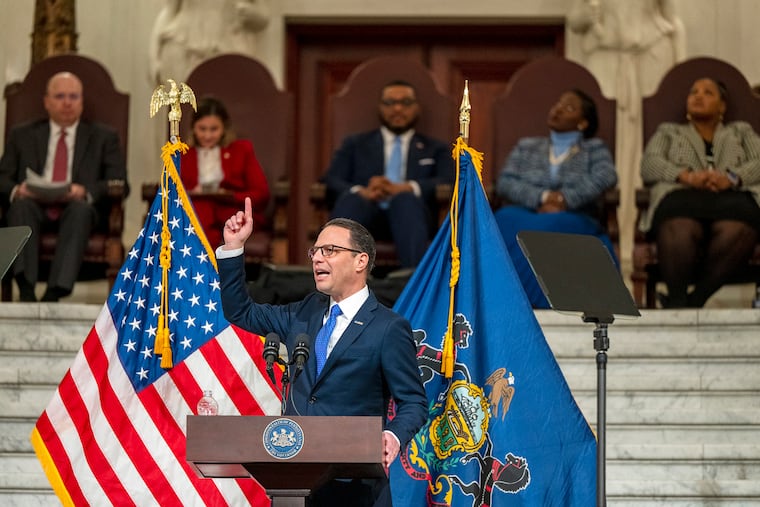Shapiro’s budget proposal includes $4 million for medical debt relief
The program would purchase medical debt, eliminating residents' responsibility for paying it off.

Thousands of Pennsylvania residents could see their unpaid medical bills wiped out by a new medical debt relief program proposed in Gov. Josh Shapiro’s state budget.
The budget includes $4 million for the state to partner with a to-be-determined organization that purchases medical debt in bulk for pennies on the dollar, eliminating patients’ responsibility for paying it off. The $4 million investment could lead to forgiveness of as much as $400 million in medical debt held by Pennsylvania residents, according to one estimate by a leading medical debt relief organization.
Health care and health insurance costs are among the biggest financial challenges for many families. Roughly a quarter of Pennsylvania residents have unpaid medical bills, according to a 2023 survey by Altarum, a health-care analytics company. Many more people worry about whether they will be able to afford the care they need, and some report skipping needed medications or appointments out of fear they won’t be able to pay, the survey found.
“It deters them from seeking care at all and then, sadly, people end up in even more dire straits — in the hospital or in even more medical debt because of a problem they should have taken care of sooner,” said Antoinette Kraus, executive director of Pennsylvania Health Access Network.
Income eligibility requirements
The $4 million program is part of an ambitious $48.3 billion spending plan Shapiro unveiled Tuesday that must be approved by the Pennsylvania General Assembly.
Under the new program, residents would be eligible to apply for help if their annual income is within 400% of the federal poverty rate — about $58,320 for an individual and $120,000 for a family of four. People whose medical debt accounts for at least 5% of their household income would also be eligible.
The state plans to seek bids from medical debt relief programs to select the partner able to buy the most debt with the $4 million investment.
» READ MORE: A group of Philadelphians erased $1.6 million in local medical debt. They celebrated with an unofficial debt burning.
Medical debt relief organizations buy debt in bundles — millions of dollars of debt at a time — for a steep discount. RIP Medical Debt, a leading debt-forgiveness nonprofit, estimates that it can buy $100 of medical debt for $1.
That means Pennsylvania’s $4 million investment could buy $400 million in medical debt. The organization estimates that Pennsylvania residents have a total of about $4.2 billion in medical debt.
In remarks announcing his budget plan, Shapiro described the new program as a way to “start wiping out medical debt for Pennsylvanians and give them the chance to succeed financially.”
Kraus said the program is an important step, but that the state must also do more to prevent medical debt from accumulating.
Her organization is pushing for a standardized approach to screening hospital patients to determine whether they’re eligible for reduced or free care, commonly referred to as charity care.